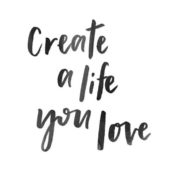Ask Rebecca Anything
Dear Rebecca,
I thought a marriage is about give and take and mutual support. I keep giving, but now I am resentful because it’s not mutual. My husband is good at taking and thinks mostly of himself. His actions are guided by doing what makes him happy. He shies away from responsibility. But he follows your principles of making self happy, putting his own happiness above all else. Example: When my son was fourteen years old and doing poorly in school, and clinically depressed, my husband was busy making plans to travel to New York to teach a workshop. That’s the part about the pursuit of self-happiness that I don’t quite understand. And I get it: I have to look out for myself and create my own happiness. I’m married to someone who is looking out for himself. I’m not faulting him, but it’s taken me twenty years and a major financial set-back to recognize the imbalance and why I feel so drained.
Dear Drained,
I am going to respond to you without a single reference to your husband. What your husband did, does, or doesn’t do has nothing to do with you or your happiness. Furthermore, your circumstances, including your child’s health, have nothing to do with your happiness. Nothing.
Let me be perfectly clear. It’s not your fault for thinking other people and various circumstances are responsible for your happiness. That’s what we all are taught at a very early age: Someone else is responsible for our happiness; something else is responsible for our happiness. Take a look at the media. There’s always someone else to blame. I did it. I placed the blame on everyone except myself as to why I was so unhappy. My dear Drained, the reason you feel discontentment and unhappiness is coming from inside of you. And contrary to what you think, the reason why you feel “so drained” is because your focus has been on everything and everyone else other than you.
The formula for happiness never includes another equation other than you. Everyone else is excluded including children, spouses, parents, friends, co-workers, cashiers, bus drivers, medical staff, travel agents, astronauts, animals, and the mailman. This is a very powerful concept to “get” because now you—and you alone—are solely responsible for your happiness. Let me repeat. You are responsible for your happiness. Spiderman, who quoted Voltaire, said, “With great power comes great responsibility.”
Now that you know the truth, what are you going to do about it? As I see it, you only have two choices: (1) You can power-up and take on the responsibility for your happiness or (2) you can continue to feel powerless and make excuses and blame other people and or circumstances for your unhappiness. I look at life like this: If I’m solely responsible for my happiness, and I am, what do I need to do now? What do I need to change? How do I change? How do I integrate this new information into my daily life? I’m glad you asked. Here’s how.
You want to be happy? Practice the following every day, for the rest of your life.
- STOP criticizing (yourself or others)
- STOP complaining (about yourself or others)
- STOP judging (yourself or others)
- STOP expecting anything from anyone
- STOP blaming someone else for your unhappiness
- STOP having opinions about what someone else is doing
- STOP discussing anyone else unless its complimentary (including yourself)
- STOP focusing on what’s wrong
Now you don’t have to practice any of the above. But I promise you that if you don’t, you will remain unhappy. You want to be happy? “Unlearn” what you’ve learned and
- START accepting people just as they are
- START allowing people to be themselves, without judgment
- START taking deeper breaths throughout your day
- START focusing on what’s good in your Life
- START becoming more self-aware
- START being honest with yourself
- START living consciously
- START making small changes
- START looking in the mirror for answers
- START asking the Universe for guidance
Remember, every time you criticize, complain, judge, blame, have expectations, and focus on “what’s wrong,” you literally subtract from your happiness. Now that you know the truth, what areYOUgoing to do about it? Remember, your happiness is never, and I repeat, never dependent on anyone else. I don’t care what they’re doing or what they are not doing. No one has the power to make you unhappy.
Finally, I’d like you to know that you will find the happiness you seek if you are willing to journey on the road less traveled. The reason why people are not as happy as they could be is because they arenot willing to committo the arduous daily task of monitoring all moments. It’s called living consciously and becoming self-aware.
Warning:Taking responsibility for your OWN happiness is not necessarily easy, pleasant, or fun.
University of Happiness Attendance Guidelines
You’re in training every day, including weekends. You don’t take vacations. You’re always on duty without lunch or breaks. And you’re constantly looking in the mirror because that’s where all your answers are. The only time-off you get is when you’re sleeping. When you’re ready to make that type of moment-by-moment commitment, I promise you, you will live happily ever after. Heavenison Earth, patiently waiting for you to discover it.
P.S. I want you to know how much I love your courage to share the truth of your experience with the world. Every single one of us is not without multiple challenges. You are exceptional because you’re asking the tough questions. You’re asking tough questions because you want answers. Why do you want answers? Because you want to be happy.
A short time later, Rebecca writes:
Dear Drained,
I want you to know that this is your time. It’s time to make changes and begin living happily ever after. I have an important question for you. If I asked your husband about the marriage, what would he say? There are always two sides to every story. I’m curious: Are you able to create a list as to what your husband would say about you? Be honest. Honesty brings freedom and clarity. Think about that and write back.
Love,
Rebecca
Drained writes, he would say that:
- We have a lot of issues that need to be worked out, and it will take time
- I repeat myself
- I don’t listen
- It’s not tit for tat (I want “compensation” for what I do)
- I compare our marriage to other marriages
- We have a long history
- I am “all over the place” with discussions, I am hard to talk to, and impossible to have a meaningful discussion with
- I am too pointed in my comments
- I start too many projects
- I don’t put things away
- I am disorganized and I should do things the way he suggested.
I’ve written down all the things I do (taxes, monthly bills, managing property, remodeling rental property, homeschooling, grocery shopping, cooking, tending to kid’s health issues, financial planning, gardening, etc.). And I asked him to mark those that he feels are most important. All other things will either be hired out or given less priority. This was about two or three years ago, and he claims he responded and returned the sheet of paper. Then he said maybe he still has it because I certainly did not get it. (I wrote it down because he was generally too “busy” when I asked to have a talk in person).
The only responsibilities he has (meaning things he can be relied upon to do on a regularly basis) is he brings in the mail. He does other things, but if he has the time, and does not want it to be responsible. He doesn’t acknowledge that I do just about everything in the house. If he doesn’t acknowledge it, then he doesn’t have to give credit. Somewhere along the line, that’s where I started to get resentful and lost the joy.
Here’s my second enlightened moment. I’ve been taking on more and more each year. The more I did, he’d be happy, but only for a while. Then I’d have to do more and more until we are here and I do just about everything in the house. Maybe I thought it would help him by taking care of business. Maybe if he was happy, then our marriage would be better. Or, that he would love me more. And, sometimes it was easier to just do it than wait for him to get around to it and/or avoid a big discussion. In all fairness, I definitely have my flaws and my own neuroses and am not easy to live with. I am trying to recall all his other complaints. He has a lot, for sure. That’s about all I can recall for now.
Rebecca responds:
Please remember that when I answer you, it’s always my intention to (1) find the truth and (2) assist you with finding peace.
This might be difficult to hear but the truth is that if your husband did everything you asked him to and he behaved exactly the way you wanted him to, you would still be unhappy. Why? Because happiness is an inside job—period. One of the reasons for your frustration is you think that if your husband changed, you’d be happy. I’m here to tell you, unequivocally, that is not the case. Your husband is not the source of your unhappiness.
Remember:
- Your happiness does not depend on what anyone else says.
- Your happiness does not depend on what anyone else doesn’t say.
- Your happiness does not depend on what anyone does.
- Your happiness does not depend on what anyone else doesn’t do.
- Your happiness does not depend on your circumstances either, regardless of what they are.
Unless you engage in a daily moment-by-moment commitment to growing beyond who you are now, you will never find the happiness you seek. Happiness comes from within. There are no exceptions. The road to happiness begins and ends with the person in the mirror.
What Else Is Wrong?
A second issue, according to you, is that you carry the majority of the household responsibility. Let’s say that’s true. Let me share with you what I’ve learned about “giving of myself” and happiness. Whenever I decide to give someone something, whether it’s my time, or an actual gift, or take on added responsibilities like the example you stated earlier, I make the decision and choice to give without expecting anything back in return—including expecting a thank-you. In other words, I give without strings or conditions attached.
I didn’t always have that perspective—give without expectations of anything in return. In fact, the majority of my life I unconsciously and sometimes consciously gave to get something back in return. What were some of the things I wanted in return? What I wanted varied from love, time, attention, kindness, praise, acknowledgement, credit, compassion, concern, sympathy, friendship, responsiveness, and money, to name a few examples of what I expected when I extended myself just as you stated earlier.
Happiness Is Always My Priority
While on my journey of prioritizing happiness, I learned that when I give I cannot expect anything in return. I have to give without strings or conditions attached to whatever I’m giving. As I mentioned before, I can’t even expect a thank-you. Why? Because expectations subtract from happiness. Expectations always subtract from happiness. My dear Drained, you have so many expectations, it’s no wonder you are so unhappy.
A Few Characteristics of Happy People
- Happy people don’t expect anything from anyone.
- Happy people don’t complain.
- Happy people don’t compare themselves to others.
- Happy people don’t get angry too often, and if they do, they realize their anger has nothing to do with another person or an existing circumstance.
- Happy people don’t try to control anyone else.
- Happy people don’t talk negatively about others or themselves.
- Happy people are conscious and aware of the energy they emit.
- Happy people take responsibility for their own happiness.
- Happy people know they cannot change anyone but themselves.
- Happy people are kind.
- Happy people are patient.
- Happy people accept others unconditionally.
- Happy people are not critical.
- Happy people don’t make judgments.
- Happy people are self-aware.
- Happy people don’t blame others for their unhappiness.
- Happy people do not create drama.
- Happy people live in the moment.
- Happy people don’t try to change anyone else.
- Happy people are constantly evolving into happier people.
- Happy people spread happiness.
- Happy people know that their happiness depends on the person in the mirror.
Now, the only reason I can vouch for all of the above is because I used to be extremely unhappy and the opposite of everything I listed above. I was one of the most miserable persons you’d ever want to meet. I was trapped in a cycle of blaming and finger-pointing. I was easily offended, easily irritated, quick to anger, bossy, opinionated, controlling, confrontational, moody, critical, and I needed to be right—about everything. Need I go on? Did I want to be happy? Had you asked me that question then, I would have said, “Of course I do.” However, I had no clue that my behavior was literally sucking and subtracting the happiness out of my life. When I discovered that my former behavior and my need to be happy weren’t compatible, I was forced to change my behavior. And, I don’t mind admitting any of the above, because, quite frankly, I’m very proud of the behaviors I chose to eliminate from my life.
Finally
So, you see, it’s up to you, and only you, to make all the necessary changes if you want to be happy. It’s up to you to change your perspectives. It’s up to you to change your behavior. It’s up to you to choose your focus. It’s up to you to become a happy person.
I guarantee that when you change, your life changes. You have the power and ability to be happy, regardless of your circumstances and regardless of what anyone else does, says, or doesn’t say or do. Now that you know the truth about happiness, the ball is in your court. You can change your life, but you have to change you first.
Warning: Finding peace and happiness is found on the road less traveled. And that road is less traveled for a reason. Your journey is going to be never-ending, extremely difficult, and brutally challenging. However the reward is heaven on Earth.
Love,
Rebecca



Leave a Reply
Want to join the discussion?Feel free to contribute!